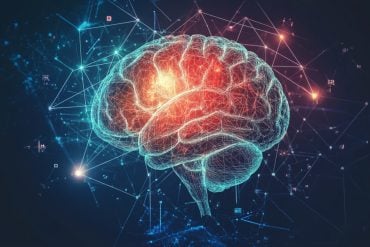Summary: The motivation to invest in social interactions is closely linked to the reward system via the activation of dopaminergic neurons.
Source: University of Geneva
Human beings, like most mammals, need social interactions to live and develop. The processes that drive them toward each other require decision making whose brain machinery is largely misunderstood.
To decipher this phenomenon, a team from the University of Geneva (UNIGE) has studied the neurobiological mechanisms at stake when two mice come into contact through learning a task. They observed that the motivation to invest in a social interaction is closely linked to the reward system, via the activation of dopaminergic neurons.
These results, to be read in the journal Nature Neuroscience, will make it possible to study physiologically the possible dysfunctions of these neurons in diseases affecting social interactions, such as autism, schizophrenia or depression.
Social interaction is an integral part of our daily lives, although the intention to interact with others requires an effort to act. So why do we do it? What is the mechanism behind the motivation we feel to engage with others?
To identify which neurobiological circuit is the basis of social interaction, a team from the UNIGE, member of the National Centre of Competence in Research (NCCR) Synapsy, observed what happens in the brains of mice seeking the contact with their conspecific.
Social interaction is a natural reward
“In order to observe which neurons are activated during social interaction, we taught mice to perform a simple task that allows them to enter in contact with their fellows mice,” explains Camilla Bellone, professor in the Department of Basic Neuroscience at the UNIGE Faculty of Medicine and director of the NCCR Synapsy.
Two mice were placed in two different compartments and separated by a door. When the first mouse pressed a lever, the door opened temporarily, allowing social contact to be established with the second mouse through a grid.

“As the experiment progressed, the mouse understood that it had to press the lever to join its fellow mouse. With this task, we can measure the effort the mice are willing to put to engage in interaction with conspecifics,” continues Clément Solié, a researcher in Camilla Bellone’s team.
Using electrodes, the scientists measured the activation of neurons. “We found that the interaction between two mice, similarly to other natural reward, led to the activation of dopaminergic neurons, which are located within the reward system,” says Camille Bellone.
These neurons release dopamine—the so-called pleasure molecule—which is crucial for several motivated behaviors.
“What is even more interesting is that while during the first sessions, the dopaminergic neurons are activated when the mice interact with the conspecific, as soon as the mouse learn the association between the lever press and the interaction, the activity of dopaminergic neurons precede the reward,” continues Benoit Girard, researcher in the Department of Basic Neuroscience.
“Similarly, if the mouse presses the lever but the door does not open in the end, there is a sudden drop in the activity of the dopaminergic neurons, indicating great disappointment in the mouse,” explains Camilla Bellone. “This predicting signal is the neural substrate for learning and is crucial for social motivation.”
Useful mechanisms for understanding certain psychological illnesses
Several psychiatric diseases such as autism, schizophrenia or depression are characterized by social dysfunctions and social motivation deficits are described in some of these patients.
Thanks to this study, scientists now know that these difficulties may result from dysfunctions within the reward system and more precisely at the level of dopaminergic neurons.
“We will now be able to use these neurons as targets to find treatments for these diseases,” says Benoit Girard.
“Furthermore, the reward system is at the basis of the occurrence of addictive behaviors. Whether the excessive use of social media network could hijack the dopaminergic system and be at the basis of maladaptive behaviors toward social media is an interesting hypothesis that can be now tested,” notes Camilla Bellone. The Geneva team will now focus its research on the study of these psychological illnesses via the functioning of these neurobiological mechanisms.
About this social neuroscience research news
Author: Press Office
Source: University of Geneva
Contact: Press Office – University of Geneva
Image: The image is in the public domain
Original Research: Closed access.
“VTA dopamine neuron activity encodes social interaction and promotes reinforcement learning through social prediction error” by Camilla Bellone et al. Nature Neuroscience
Abstract
VTA dopamine neuron activity encodes social interaction and promotes reinforcement learning through social prediction error
Social interactions are motivated behaviors that, in many species, facilitate learning. However, how the brain encodes the reinforcing properties of social interactions remains unclear.
In this study, using in vivo recording in freely moving mice, we show that dopamine (DA) neurons of the ventral tegmental area (VTA) increase their activity during interactions with an unfamiliar conspecific and display heterogeneous responses. Using a social instrumental task, we then show that VTA DA neuron activity encodes social prediction error and drives social reinforcement learning.
Thus, our findings suggest that VTA DA neurons are a neural substrate for a social learning signal that drives motivated behavior.






